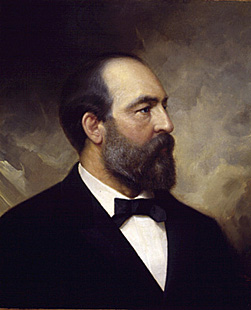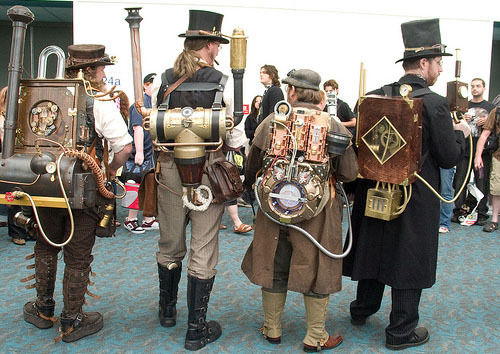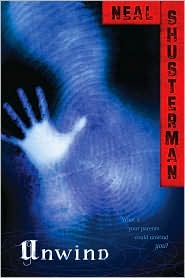(I really should have known more about this guy.)
need to be quick about this because I stepped out of a Super Secret Spy meeting to blog. I shouldn't even be telling you because, duh, it's super secret. But . . . we're all friends here, so I think I can mention my clandestine life* in passing. I can't give you much detail, because, again, duh, then I'd hafta kill you.
*I'm a Super Aunt, see, and that sometimes involved spending time fighting the "bad guys" with your nieces and nephews.
The main subjects of Destiny of the Republic also have their clandestine elements. There is the unseen bacteria that ultimately killed a President, there are the behind-the-doors machinations of a political party, there are the internal delusions of a mad man, and there is mostly forgotten life of the 20th President of the United States.
I can honestly say that what I knew about President Garfield before I read this book wasn't enough to drown in. I had a vague recollection that he was shot because his assassin wanted a job. In my foggy and vague memories, the gun shot killed Garfield and the assassin was a supporter of Vice President Chester Arthur. It was true that the man who shot President Garfield, Charles Guiteau, wanted an appointment, but it was truly his own madness that led him to believe that God wanted Garfield removed from office. Guiteau believed that President Garfield was a threat to the Republic and to the Republican Party. And while Garfield died from complications from his wounds, it was truly preventable and curable infection that killed him instead of the initial injury.
So I was nominally right, but mostly I was really, really wrong.
Destiny of the Republic is mostly outside my reading sweet spot. There are no vampires, there's not much romance, and, for goodness sake, it's non-fiction. However, it was really, really interesting.
I learned a lot. I was mesmerized by the politics of the day; they weren't that different from those of today but much of the obnoxious behavior was in-party fighting instead between party. The current state of the medical field was horrifying and gripping. The drive of Alexander Graham Bell to invent a machine that would help locate the bullet still lodged in the President's body was riveting. The audacity and insanity of Charles Guiteau was astounding.
All in all, I highly recommend Destiny of the Republic. It's tone and delivery reminded me of Devil in the White City by Erik Larson (another non-fiction book I highly recommend).
In summary, you should read this book, and I should get back to my meeting. The world is depending on me, or, at least, a niece and a nephew.







